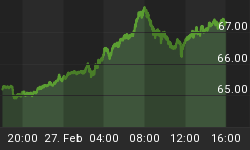ECB President Mario Draghi continued to impress with his very direct style during the European Central Bank's (ECB) first press conference of the year. While not lowering interest rates or announcing further easing measures, he made it clear that the ECB is "ready to act" should the environment deteriorate. Our takeaways:
Draghi increased pressure on policy makers: key facets in resolving the crisis are national governments, euro area governance, as well as financial stability. Draghi emphasized that the "fiscal compact" must be unambiguous and efficient. Notably, he urged a deadline to come to agree on the compact by the end of January, rather than March, as currently planned.
With regard to "private sector involvement" (PSI) in Greece (referring to the "voluntary" cuts for private creditors under negotiation), Draghi called them politically understandable, but took the opportunity to try to convince the markets that there will never be another PSI in the future, as promised by policy makers on December 9. He referenced the detrimental unintended consequences.
Referring to the effect of credit contraction on the Eurozone economy, Draghi outlined three factors influencing bank lending: lack of funding, lack of capital and risk aversion:
On funding: The unlimited 3-year liquidity facility (Long Term Refinancing Operation / LTRO) was put in place because €200 billion in bank bonds are coming due this quarter. Another LTRO will take place soon, easing collateral requirements to allow more banks to participate. The LTRO appears a success, as borrowing costs have come down across the yield curve, initially at the short-end, and most recently (on the backdrop of successful Italian and Spanish auctions), at the longer end of the curve. Further, some unsecured intra-bank lending has recommenced. Draghi also noted that a lot of the recent demand for sovereign securities has come from market participants other than those that have access to liquidity from the ECB. Our perspective: the LTRO boosts bank earnings. While the Fed's quantitative easing program allows the Fed to have record income (the more money the Fed prints, the more interest the Fed earns from the bonds purchased), the ECB's approach "splits the coupon", charging 1% for loans, allowing banks to reap the benefits of redeploying that money into higher yielding securities.
On capital: Draghi decried the stress test by the European Banking Authority (EBA) conducted last summer. Specifically, he argued, that stress tests are good, but there must be an avenue to fill the capital shortfalls discovered. He referenced the U.S., where money was available to shore up banks. In Europe, however, national governments did not have the resources, nor was the European Financial Stability Facility (EFSF) in place. We interpret that more stress tests are to come, but public money will be made available, should banks be unable to raise capital in the markets. As EFSF money may be deployed, this would mean German taxpayer money would be used to shore up Spanish banks, a very noteworthy development.
Our interpretation of the press conference was that Draghi clearly understands the issues. He does what all central bankers do: provide ultimate support to the banking system; he does so in an amazingly aggressive manner. For now, the euro is up as a result of the conference; short positions in the euro had reached extremes, a short covering rally could well take on a life on its own. As the year progresses, we expect both euphoria and panic to drive the euro. As the drama continues, expect central banks in the rest of the world to "take out insurance", i.e. be most accommodative because of the feared contagion. While the focus may be on the euro, should dynamics unfold as we see them, it could mean a weaker U.S. dollar and stronger commodity currencies, with the latter most benefiting from printing presses around the world fighting potential contagions coming out of Europe.
Please register for our Webinar on Thursday, January 19, or sign up for our newsletter to be informed as we discuss global dynamics and their impact on currencies.















